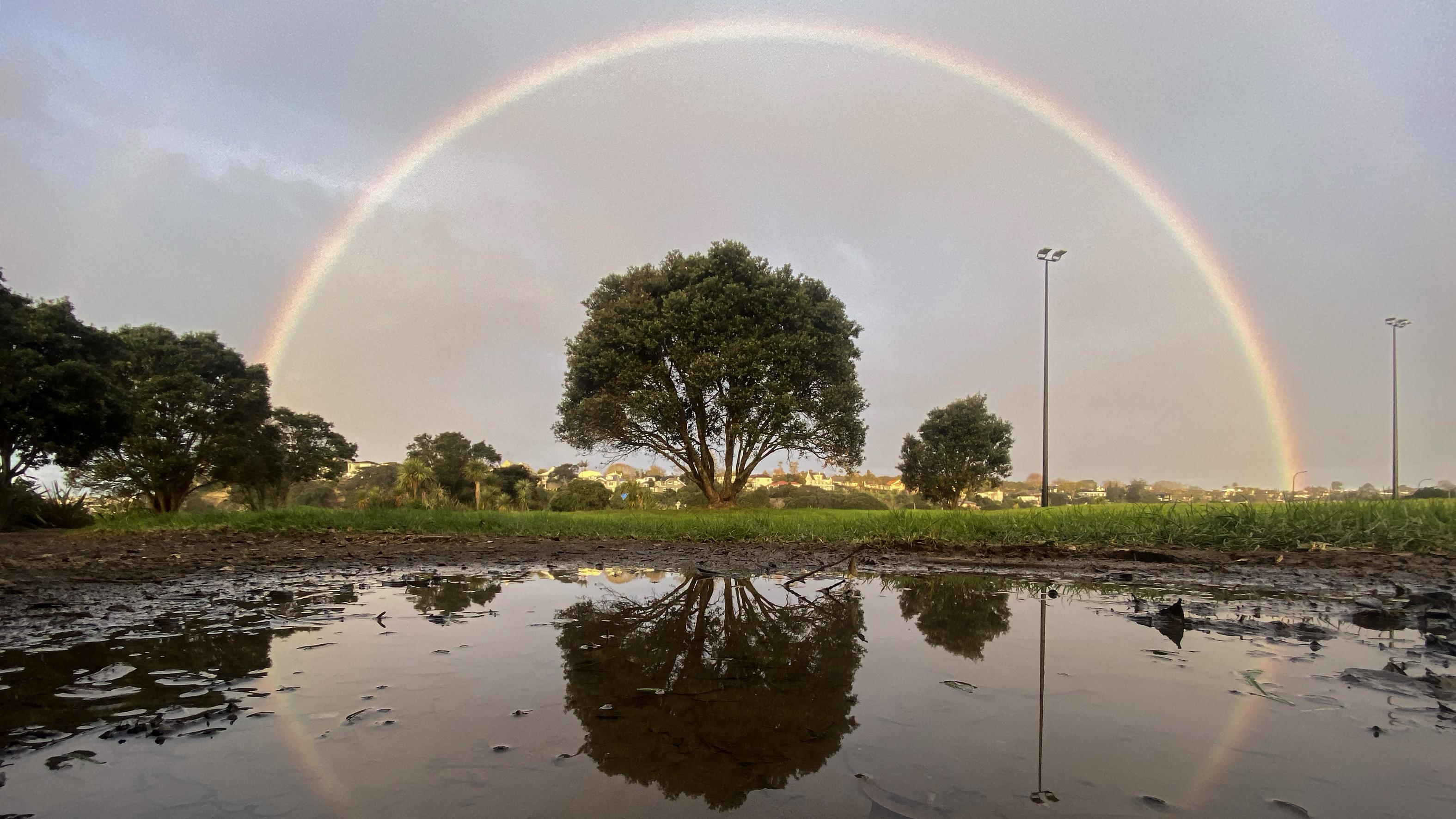 A rainbow is reflected in a puddle of water in Auckland on Aug 12, 2023. (PHOTO / AFP)
A rainbow is reflected in a puddle of water in Auckland on Aug 12, 2023. (PHOTO / AFP)
WELLINGTON — Greenhouse gas emissions from human activities are changing New Zealand's climate, impacting the environment, communities, and the economy, according to a report released on Wednesday.
The Environment Ministry and Stats NZ have released the latest, three-yearly update about the state of the country's atmosphere and climate.
About 750,000 New Zealanders and 500,000 buildings near rivers and in coastal areas worth more than 145 billion NZ dollars ($87.39 billion) are already exposed to extreme flooding
"Human activities are driving biodiversity losses. It is now a question of how close we are to tipping points, beyond which large and, in some cases, irreversible changes will be unavoidable," said the Environment Ministry's Deputy Secretary Natasha Lewis.
READ MORE: Biodiversity link to climate highlighted
A key theme of the report is the impact that climate change is having on biodiversity and ecosystems. This natural infrastructure acts as a buffer against the worst effects of climate change, Lewis said.
The report "Our atmosphere and climate 2023" provides further evidence that emissions from human activities are putting pressure on the climate, which is adversely impacting the environment, communities, Maori interests, infrastructure, and the economy, she said.
Eight of the 10 warmest years recorded in New Zealand up to 2022 have been in the last decade.
"Even minor changes in our climate can have big effects on our environment. Rising temperatures has a significant effect on agriculture, energy demand, ecosystems, and recreation," she said.
New Zealand is also experiencing variations in rainfall, more frequent droughts and ocean warming to record levels. Glaciers are in retreat and sea levels around parts of the country have risen twice as fast in the last 60 years as they did in the previous 60 years, Lewis said, adding that the frequency of extreme temperature events in the country has doubled due to human activities.
About 750,000 New Zealanders and 500,000 buildings near rivers and in coastal areas worth more than 145 billion NZ dollars ($87.39 billion) are already exposed to extreme flooding, she said, adding that major urban centers, sites of cultural significance, treasured species, and food security are also at risk in these areas.
READ MORE: New Zealand records 8 out of 10 warmest years in last decade
"Many sectors of our economy rely on natural resources such as water, which depend heavily on rainfall and temperature or are in areas that are prone to flooding. The cost of responding to extreme weather events is likely to increase," Lewis said.


